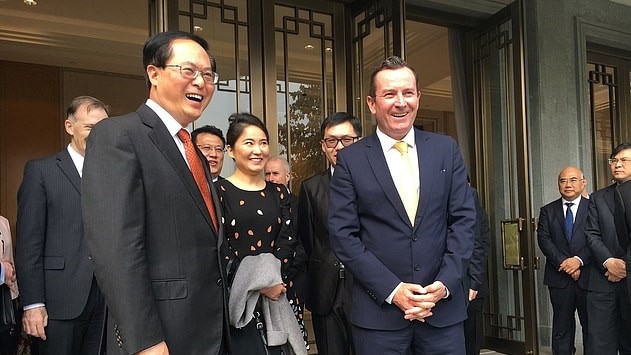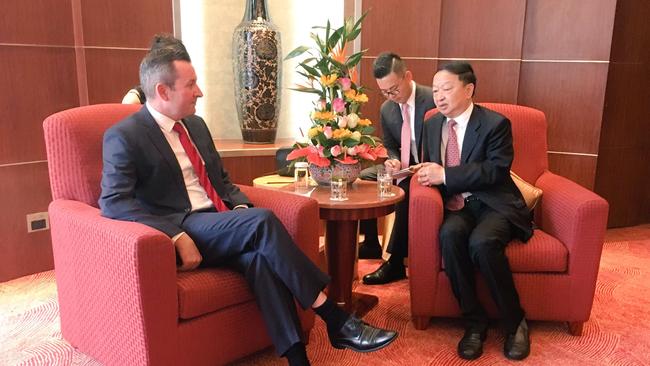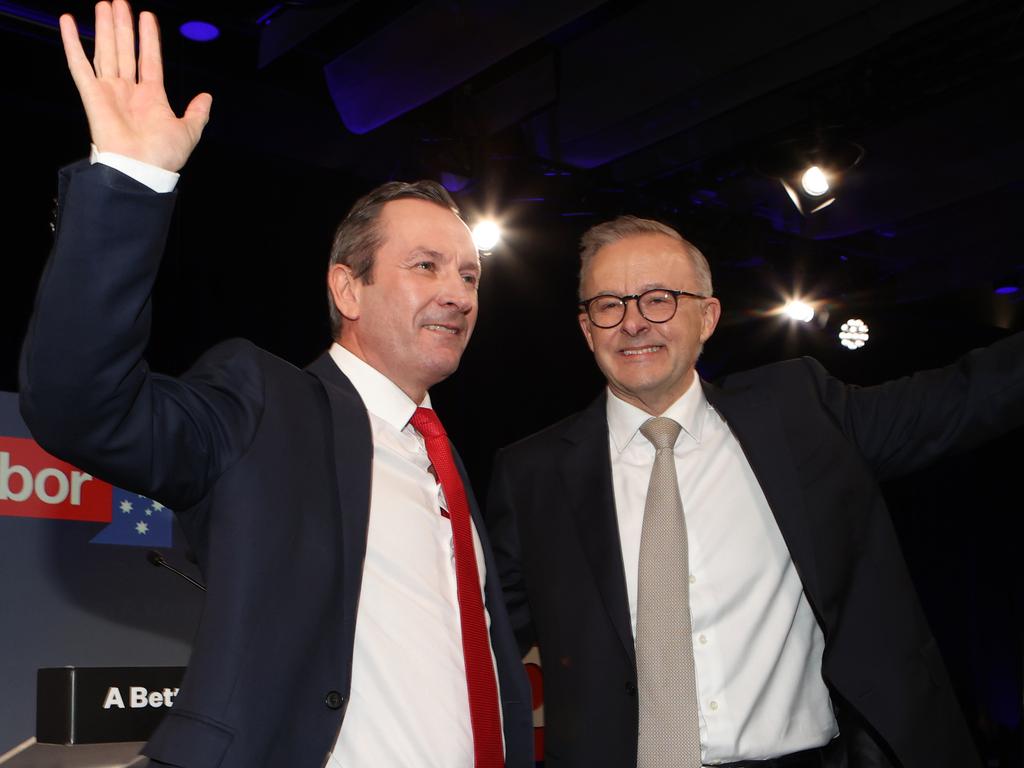WA Premier Mark McGowan ‘revelled in stepping out from commonwealth’ on China
Mark McGowan was the first state leader to take a strong alternative approach in foreign policy, setting a precedent for a lack of cohesion, particularly on China, experts say.

Mark McGowan was the first premier to take as strong an alternative approach to a federal government in foreign policy and “revelled” in stepping out from the commonwealth particularly on the relationship with China, foreign policy experts say.
The outgoing Western Australian leader frequently called out the former Coalition government and its handling of the relationship with Beijing, which he labelled “insane”, and demanded Scott Morrison end the damaging rhetoric against Australia’s biggest trading partner.
During a visit to China last month – the first in four years – Mr McGowan said it was “unfounded” to have a “fearful relationship” with Beijing after 50 years of fostering a close economic relationship.
Australian National University emeritus professor of strategic studies, Hugh White, said Mr McGowan and had been offering up “an alternative take” for some time on the relationship with China compared to Canberra.
“This is completely new in my experience. I don't think we’ve seen a state government taking such a high profile and such a well-developed alternative view on such a significant foreign policy question before,” he said.
“McGowan has been striking in the consistency and clarity with which he has articulated a different view on this key foreign policy question from federal politicians are both sides of politics.”
ANU international security and intelligence studies professor, John Blaxland, said Mr McGowan had changed the face of the federation forever, but not necessarily for the better.
“What he demonstrated was a very fragility of the Federation. Ever since the Second World War, we’ve had this sense that the federal government is pre-eminent and omnipotent, but McGowan proved that wrong and he kind of revelled in it,” he told The Australian.
“His actions have set a precedent for a lack of cohesion in the federation. Would-be adversaries now have a much better understanding of the fracture lines of the federation.”
Strategic Analysis Australia director, Michael Shoebridge, said the Premier had “discounted the need for a coherent national approach to China” and prioritised the economic interest of WA instead.

“I think he just he saw his role as premier as about purely about jobs and growth and saw that he had no responsibilities for national security or strategy,” he said.
“He contributed to Beijing‘s program of trying to divide Australian jurisdictions on China.”
Co-lead for the Defence Strategic Review, Peter Dean, said while Mr McGowan was “entitled to his views”, the need for cohesion across all jurisdictions had never been so important considering the strategic circumstances facing the country.
“One of the things about the federation is the interests between Commonwealth and states don’t always align … but the DSR talks about the need for integrated statecraft, which is a whole of government and whole of nation approach,” he said.
“Given the risks we face in the contemporary Indo-Pacific strategic environment, it would be highly beneficial if international state craft was enacted at all levels of government and we can get agreement of what is in overall national interest rather than what is in the interest of specific states or regions.”
Perth USAsia chief executive Gordon Flake said while there was “no question” that there was tension between Mr McGowan and the former federal government, the premier’s approach to foreign policy was “not as different as you think”.
He argued Mr McGowan’s legacy would instead be wrapped up in the state’s Covid policies – pointing to the decision to close the border to the rest of the country.
“What WA did was protect our international engagement,” he said. “In order to keep the economic engine of Australia running, to keep the iron ore mines running, to keep the LNG projects running, and thus to keep the exports going and keep the national economy running, Western Australia could not pursue Covid policies like you saw in New South Wales.”





To join the conversation, please log in. Don't have an account? Register
Join the conversation, you are commenting as Logout